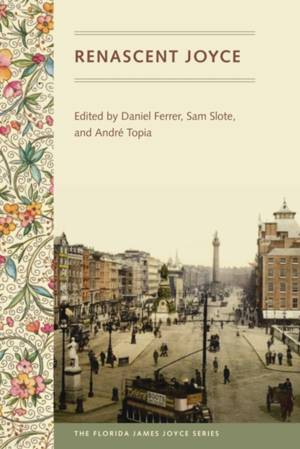
- Afhalen na 1 uur in een winkel met voorraad
- Gratis thuislevering in België vanaf € 30
- Ruim aanbod met 7 miljoen producten
- Afhalen na 1 uur in een winkel met voorraad
- Gratis thuislevering in België vanaf € 30
- Ruim aanbod met 7 miljoen producten
Zoeken
Omschrijving
Revival, reinvention, and regeneration: the concept of renascence pervades Joyce's work through the inescapable presence of his literary forebears. By persistently reexamining tradition, reinterpreting his literary heritage in light of the present, and translating and re-translating from one system of signs to another, Joyce exhibits the spirit of the greatest of Renaissance writers and artists. In fact, his writing derives some of its most important characteristics from Renaissance authors, as this collection of essays shows. Though critical work has often focused on Joyce's relationship to medieval thinkers like Thomas Aquinas and Dante, Renascent Joyce examines Joyce's connection to the Renaissance in such figures as Shakespeare, Rabelais, and Bruno. Joyce's own writing can itself be viewed through the rubric of renascence with the tools of genetic criticism and the many insights afforded by the translation process. Several essays in this volume examine this broader idea, investigating the rebirth and reinterpretation of Joyce's texts. Topics include literary historiography, Joyce's early twentieth-century French cultural contexts, and the French translation of Ulysses. Attentive to the current state of Joyce studies, the writers of these extensively researched essays investigate the Renaissance spirit in Joyce to offer a volume at once historically informed and innovative.
Specificaties
Betrokkenen
- Uitgeverij:
Inhoud
- Aantal bladzijden:
- 172
- Taal:
- Engels
- Reeks:
Eigenschappen
- Productcode (EAN):
- 9780813042459
- Verschijningsdatum:
- 19/02/2013
- Uitvoering:
- Hardcover
- Formaat:
- Ongenaaid / garenloos gebonden
- Afmetingen:
- 157 mm x 236 mm
- Gewicht:
- 385 g

Alleen bij Standaard Boekhandel
+ 162 punten op je klantenkaart van Standaard Boekhandel
Beoordelingen
We publiceren alleen reviews die voldoen aan de voorwaarden voor reviews. Bekijk onze voorwaarden voor reviews.






